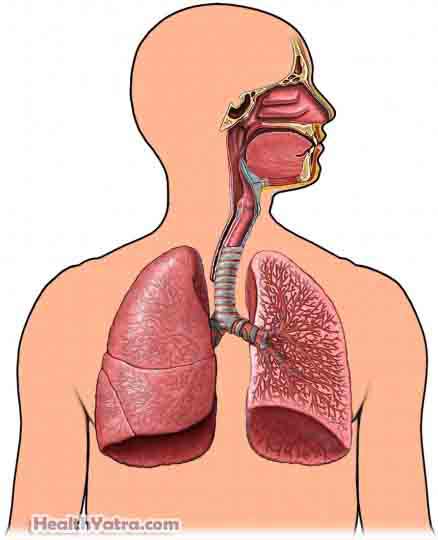परिभाषा
Severe Acute Respiratory Syndrome is also known as SARS. It is a viral infection. SARS can cause severe respiratory distress. This is a potentially serious condition. It requires care from your doctor. If you suspect you have this condition, contact your doctor right away.

का कारण बनता है
SARS is caused by a type of virus called a coronavirus. The virus is spread from droplets in the air. The droplets come from spray when a sick person sneezes or coughs. The virus can also be picked up from objects that an ill person has touched.
जोखिम कारक
The following factors increase your chance of developing SARS:
- Gene variation in the immune system—This gene variation may be more common in people in Southeast Asia. The variation makes people more susceptible to developing SARS.
- Recent travel to locations in Asia where SARS outbreaks have been reported
- Close contact with someone who has SARS
- Healthcare workers who care for patients with SARS
लक्षण
If you experience any of these, do not assume it is due to SARS. These लक्षण उत्पन्न हो सकते हैं by other, less serious health conditions. See your doctor if you experience any one of them:
- बुखार
- Chills
- Body aches and pains
- नाक बंद
- दस्त
- सूखी खाँसी
- सांस लेने में कठिनाई
- न्यूमोनिया
निदान
आपका डॉक्टर आपके लक्षणों और चिकित्सा इतिहास के बारे में पूछेगा। एक शारीरिक परीक्षा ली जाएगी। परीक्षण में शामिल हो सकते हैं:
- Blood tests—can reveal the presence of immune cells made by your body to fight the SARS virus
- Tests on samples of blood, sputum, stool—can reveal the presence of the virus that causes SARS
उपचार
There are currently no medicines to cure SARS. Viral infections cannot be treated with antibiotics. Researchers are looking for a way to shorten the course and severity of the infection with:
- Antiviral drugs
- Corticosteroids
- Immune-modulating drugs
The symptoms of SARS may be treated with oxygen therapy. If you are having difficulty breathing, you may be given oxygen through a tube or mask. More severe problems may require a machine to help you breathe.
रोकथाम
To help reduce your chance of getting SARS, take the following steps:
- Practice proper hand washing.
- Regularly use alcohol-based hand sanitizers.
- Disinfect toilets, sinks, or other objects or surfaces used by anyone with SARS.
- Do not share utensils, glasses, towels, or linen with anyone with SARS.
- If you are a healthcare worker, use gloves, gown, and use eye protection when caring for patients with SARS.
